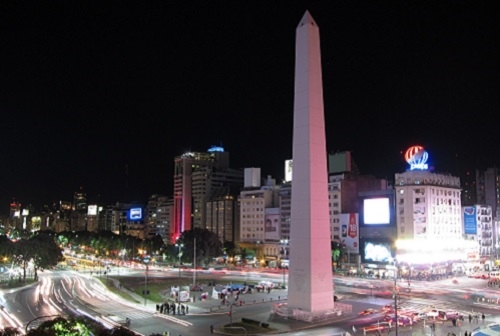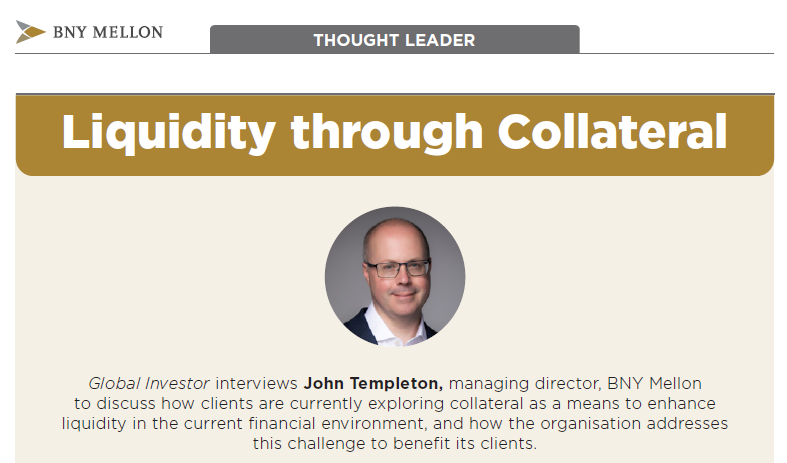HSBC: Navigating EM complexities through customisation

Matt Kiraly, global head of origination sales, Prime Finance, and Murat Demir, head of emerging markets Americas, Equity Finance, talk to Global Investor about emerging market trends in Latin America and beyond. They outline how HSBC is structured to support institutional investors in accessing and navigating the distinct subtleties of emerging markets.
Emerging markets have always been integral to HSBC. Indeed, the bank has been present in one of the world’s most prominent emerging markets – China – for more than 150 years. The Hongkong and Shanghai Banking Corporation, the founding member of today’s global banking group, opened an office in Shanghai in April 1865, just one month after it was first established in Hong Kong.
As its deep-rooted experience in China and across Asia attests, the bank is accustomed to adapting its approach in order to help clients navigate the complexities unique to each developing market. This includes a strong focus on leveraging local expertise to support market access, as well as to deliver timely insights.
Connecting clients to developing, high growth markets is a core focus for HSBC not only in Asia, but also across Latin America. The global bank can trace its standing in the Argentine market, for example, back to 1998 and HSBC is today one of the country’s largest private banking and financial services organisations in the country. The bank is also present in other LATAM countries such as Mexico, Chile, Peru, Colombia, and Uruguay. Furthermore, HSBC is poised to return to the Brazilian market. After the end of non-compete agreement with Banco Bradesco, HSBC has been able to freely operate again in the Brazilian market starting 2 January 2019. The Bank currently serves hundreds of local and multinational clients and is working on expanding its operations in the country, with the aim of becoming a bank of choice for large and medium-sized multinationals.
LATAM an important player in the EM growth story
The last few years have seen growth in both cash and listed derivative volumes, says Murat Demir, head of emerging markets Americas, Equity Finance, who points to the increase in open interest on not only global emerging market futures but also Latin American ones, as a key indicator of this trend. As an example, MSCI LATAM Index Future open interest doubled and MSCI Brazil Index open interest tripled since December 2016 to reach US$1.7bn and US$1.85bn respectively.
As volumes have increased, Demir explains that the cost of exposure has become more favourable and ease of access has improved. “Typically with any emerging market, as you see the market become more accessible you will see demand increase and a broader range of investors look to enter the market.” The Brazilian cash market is a good illustration as volume doubled to US$4bn daily in the cash market since 2016.
At the same time, the addition of some key markets to the MSCI Emerging Markets Index is helping to drive interest while also spurring efforts for greater market transparency, access, and development. “Saudi Arabia and China are definitely two of the most significant market themes that we have been speaking about with our clients over the course of 2018/2019,” says Kiraly. “However, Argentina is definitely another market where we are seeing demand as it transitions from a frontier to an emerging market.” Despite the fact that the MSCI Argentina Index is made up of only ADRs currently, HSBC expects volume in the domestic market to increase as well, and is putting the final touches to its swap offering which should be ready toward end of June 2019.
While strengthened emerging market infrastructures and more market maturity could help drive deal flow and IPO activity, in turn further capturing investor interest, Demir points out that the increased weighting of emerging markets on the MSCI ACWI Index may also bring certain challenges. He says: “As the weight of EM countries will increase within MSCI ACWI, the amount of emerging market assets derivative will naturally increase. If some of the large EM countries do not put in place re-hypothecation processes, as we have in developed countries, this could ultimately reverse the trend of EM derivative products becoming less expensive.”
HSBC - A partner of choice for accessing LATAM
Matt Kiraly, global head of origination sales, Prime Finance, says: “We have extensive local markets expertise in LATAM and are able to offer a full suite of services to our clients: from execution through to custody and clearing, alongside meeting any financing requirements. Importantly, we are able to advise our clients on options available to access the market, bespoke execution requirements or trade settlement mechanics, and help them navigate future regulatory developments.”
The bank’s broad capabilities and extensive global presence – which includes Prime Finance operations spanning time zones across five continents - enables it to provide comprehensive support to international investors.
Demir continues: “HSBC’s local presence and the way that our business is set up globally gives it easy access to emerging markets that are not as ‘emerging’ as they used to be but that still have complications in terms of market access or the funding of positions.”
Seamless execution, around-the-clock coverage, wide scope of access products tailor-made to clients’ needs, a good understanding of the very diverse local markets and regulatory landscape, have been at the centrepiece of HSBC Equity Finance LATAM offering. In turn, this makes HSBC the partner of choice for accessing Latin America.
Found this useful?
Take a complimentary trial of the FOW Marketing Intelligence Platform – the comprehensive source of news and analysis across the buy- and sell- side.
Gain access to:
- A single source of in-depth news, insight and analysis across Asset Management, Securities Finance, Custody, Fund Services and Derivatives
- Our interactive database, optimized to enable you to summarise data and build graphs outlining market activity
- Exclusive whitepapers, supplements and industry analysis curated and published by Futures & Options World
- Breaking news, daily and weekly alerts on the markets most relevant to you




